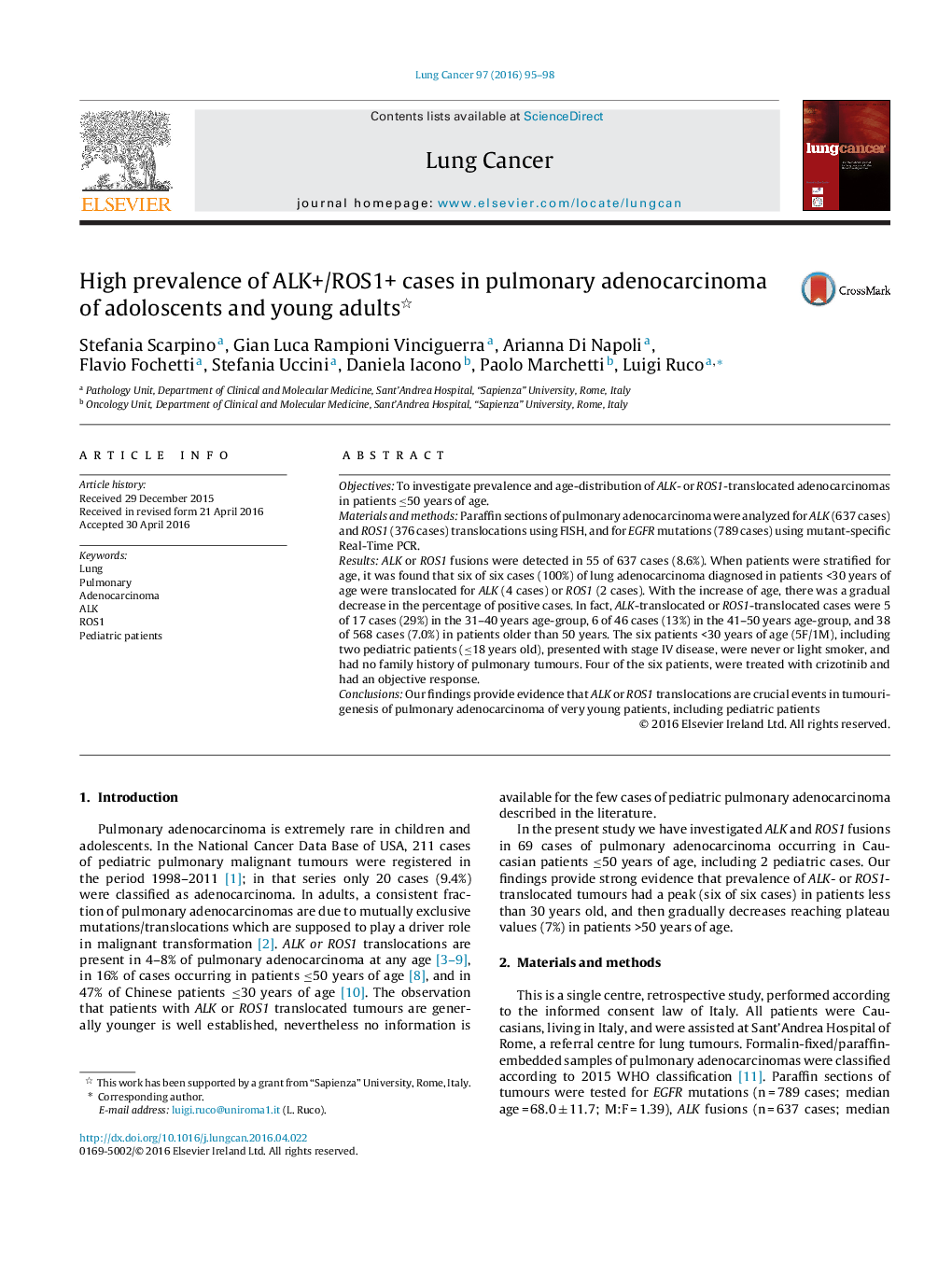| Article ID | Journal | Published Year | Pages | File Type |
|---|---|---|---|---|
| 2140497 | Lung Cancer | 2016 | 4 Pages |
•Pulmonary adenocarcinomas of adolescents and young patients (≤30 years of age) have a high prevalence of ALK/ROS1 fusions.•A similar age-dependency is not present in EGFR-mutated adenocarcinomas.•ALK+/ROS1+ tumours of young patients are clinically highly aggressive (stage IV).•Crizotinib treatment may be effective in inducing partial regression of the disease
ObjectivesTo investigate prevalence and age-distribution of ALK- or ROS1-translocated adenocarcinomas in patients ≤50 years of age.Materials and methodsParaffin sections of pulmonary adenocarcinoma were analyzed for ALK (637 cases) and ROS1 (376 cases) translocations using FISH, and for EGFR mutations (789 cases) using mutant-specific Real-Time PCR.ResultsALK or ROS1 fusions were detected in 55 of 637 cases (8.6%). When patients were stratified for age, it was found that six of six cases (100%) of lung adenocarcinoma diagnosed in patients <30 years of age were translocated for ALK (4 cases) or ROS1 (2 cases). With the increase of age, there was a gradual decrease in the percentage of positive cases. In fact, ALK-translocated or ROS1-translocated cases were 5 of 17 cases (29%) in the 31–40 years age-group, 6 of 46 cases (13%) in the 41–50 years age-group, and 38 of 568 cases (7.0%) in patients older than 50 years. The six patients <30 years of age (5F/1M), including two pediatric patients (≤18 years old), presented with stage IV disease, were never or light smoker, and had no family history of pulmonary tumours. Four of the six patients, were treated with crizotinib and had an objective response.ConclusionsOur findings provide evidence that ALK or ROS1 translocations are crucial events in tumourigenesis of pulmonary adenocarcinoma of very young patients, including pediatric patients
